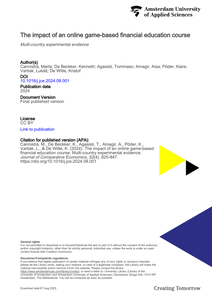Introduction: Given the complexity of teaching clinical reasoning to (future) healthcare professionals, the utilization of serious games has become popular for supporting clinical reasoning education. This scoping review outlines games designed to support teaching clinical reasoning in health professions education, with a specific emphasis on their alignment with the 8-step clinical reasoning cycle and the reflective practice framework, fundamental for effective learning. Methods: A scoping review using systematic searches across seven databases (PubMed, CINAHL, ERIC, PsycINFO, Scopus, Web of Science, and Embase) was conducted. Game characteristics, technical requirements, and incorporation of clinical reasoning cycle steps were analyzed. Additional game information was obtained from the authors. Results: Nineteen unique games emerged, primarily simulation and escape room genres. Most games incorporated the following clinical reasoning steps: patient consideration (step 1), cue collection (step 2), intervention (step 6), and outcome evaluation (step 7). Processing information (step 3) and understanding the patient’s problem (step 4) were less prevalent, while goal setting (step 5) and reflection (step 8) were least integrated. Conclusion: All serious games reviewed show potential for improving clinical reasoning skills, but thoughtful alignment with learning objectives and contextual factors is vital. While this study aids health professions educators in understanding how games may support teaching of clinical reasoning, further research is needed to optimize their effective use in education. Notably, most games lack explicit incorporation of all clinical reasoning cycle steps, especially reflection, limiting its role in reflective practice. Hence, we recommend prioritizing a systematic clinical reasoning model with explicit reflective steps when using serious games for teaching clinical reasoning.
DOCUMENT

This paper evaluates the impact of an online game-based financial education tool on students' financial literacy levels. By conducting a Randomized Controlled Trial (RCT) involving 2,220 students across four countries in a multi-country experimental setting, we demonstrate that the intervention significantly enhances students' financial literacy levels by 0.313 SD. This study contributes to the emerging academic literature concerning the evaluation of financial education interventions that incorporate learning-by-playing. The participation of students from four countries adds relevance by facilitating cross-comparison of outcomes and stimulating discussions about country-specific factors and peculiarities influencing youth financial literacy.
DOCUMENT

Loneliness and social isolation are increasingly recognized as important challenges of our times. Inspired by research hinting at beneficial effects of interacting with nature on social connectedness and opportunities provided by ambient technology to simulate nature in a rich and engaging manner, this study explored to what extent digital nature projections can stimulate social aspirations and related emotions. To this end, participants (N = 96) were asked to watch, individually or in pairs, digital nature projections consisting of animated scenes which were either dense or spacious and depicting either wild or tended nature. Subsequently, they filled out a questionnaire comprising measures for social aspirations, awe and fascination. Results show that spacious scenes elicited significantly higher social aspiration and awe scores, especially when watching alone. Design implications are discussed for making digital nature accessible for people with limited access to real nature.
DOCUMENT
